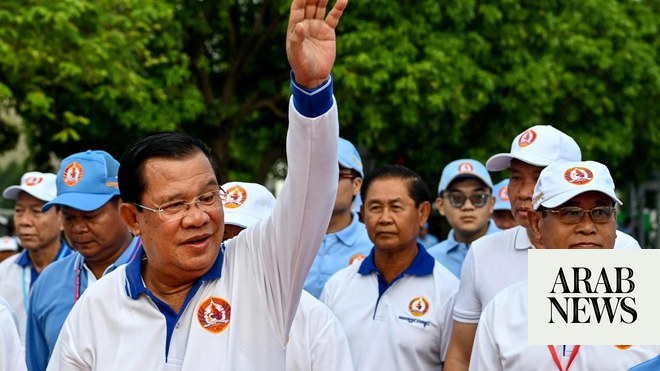
COVID-19 restrictions expected to turn social media into key election battleground
President Rodrigo Duterte will not be endorsing successor
MANILA: The Philippine election campaign officially kicked off on Tuesday, with the son and namesake of former dictator Ferdinand Marcos leading the polls to replace President Rodrigo Duterte in a race where social media was expected to be a key battleground.
More than 67 million Filipinos have registered to cast their votes on May 9 to elect a new president, vice president, around 300 lawmakers, and 18,000 local government officials, including provincial governors and town mayors.
Duterte, who is barred by the constitution from seeking re-election, said in a televised address on Monday that he would not be supporting any presidential bet.
“At this time, I am saying I am not supporting anybody, unless there is a compelling reason really for me to change my mind and decide to support a candidate,” he added.
Ten candidates are in the running for the presidential seat, the list including Ferdinand “Bongbong” Marcos Jr., incumbent Vice President Leni Robredo, boxing star Manny Pacquiao, former actor, and Mayor of Manila Francisco Domagoso, and ex-police chief Panfilo Lacson.
Marcos Jr., whose father was overthrown in 1986, has emerged as the favorite to replace Duterte.
Marcos is running alongside Duterte’s daughter, Sara Duterte, and has vowed “to unify the country.” In a December poll conducted by Pulse Asia, he emerged as a clear favorite with 53 percent of the votes.
Danilo Arao, journalism professor and convenor of election watchdog Kontra Daya, told Arab News that Marcos’ current lead in the presidential campaign was because “his family has invested a lot in rebranding the Marcos image.”
The late dictator ruled the Philippines for more than two decades, taking control of the country’s courts, business, and media after declaring martial law in 1972. His rule, which according to previous Philippine governments saw thousands of people killed or tortured, has been described as one of the darkest chapters in the country’s history.
Hustings for the three-month campaign season opened under strict COVID-19 restrictions, including a ban on handshakes, kissing, hugging, and taking selfies aimed at reducing the massive fanfare and big rallies that have been the hallmark of elections in the Philippines.
The coronavirus pandemic is expected to turn social media into a key battleground during the campaigning period.
Arao said: “(The pandemic) will be very challenging for various camps. That’s why the battleground will be on the internet, particularly social media.”












